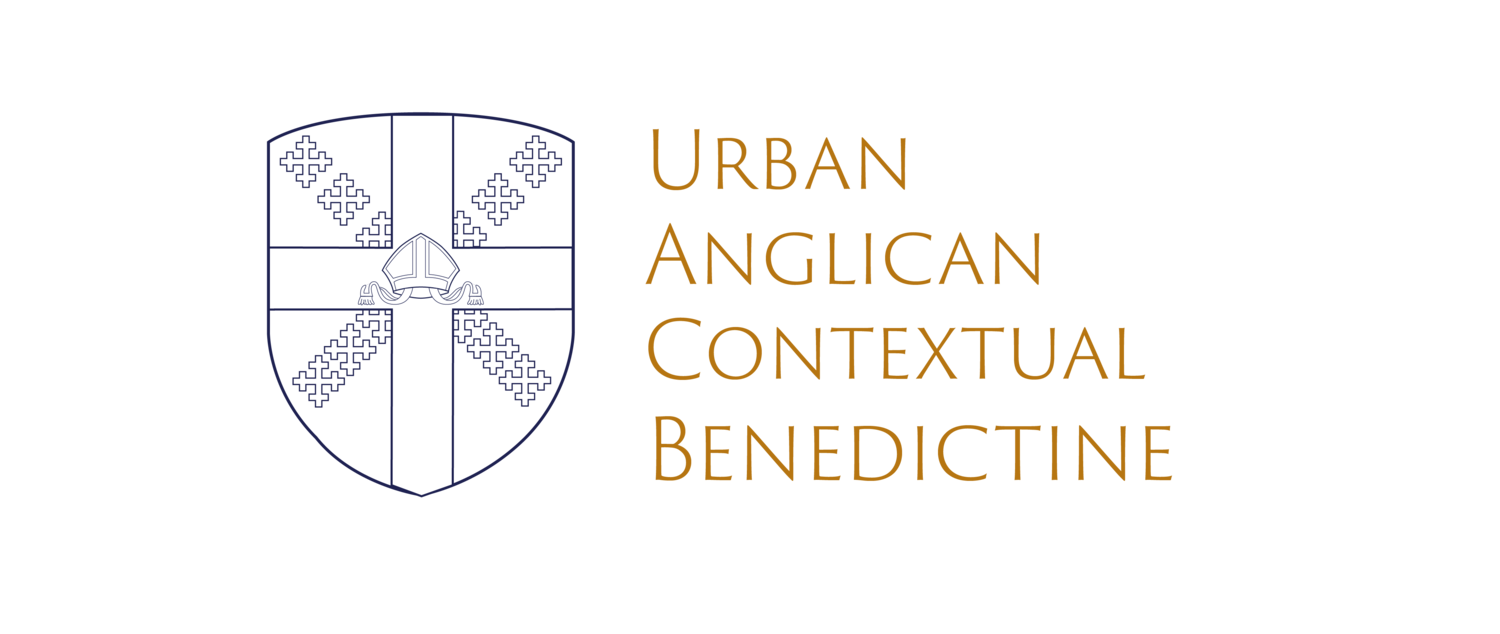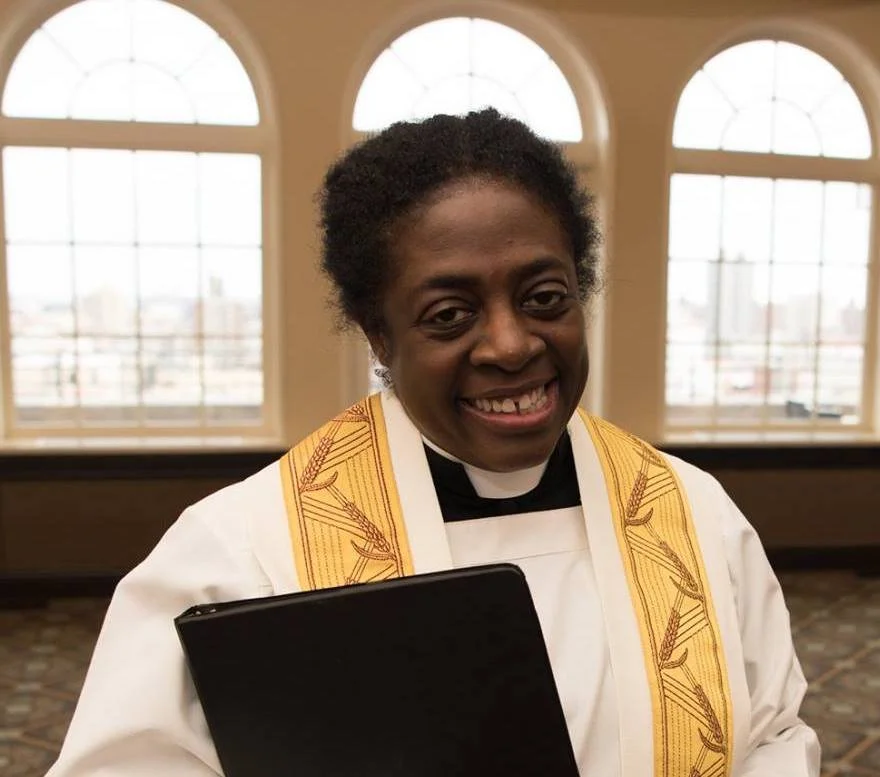Valerie Bailey Fischer (2011-2020): To be a Scholar in the Service of the Church
The Rev. Dr. Valerie Bailey Fischer is the Chaplain to the College at Williams College. Her dissertation is titled, From Deacon to Priest: An Alternative Narrative of the Ordination of Women.
I had always wanted to be a clergy-scholar. Numerous narratives in Medieval Church History speak of persons who vocations were both spiritual and academic; including monk and Archbishop Anselm of Canterbury (1033-1109) and Abbess Hildegard of Bingen (1098-1179). No surprise, what we describe as a scholar today is all about spiritual and intellectual practices that include reading, writing, studying, thinking, teaching. However, people I knew seemed to be nervous about my desire to be a clergy-scholar. The doctorate is unnecessary, you can do ministry without a doctorate (and ordination). However, I was interested in forming communities of faith and teaching its leaders how to care for themselves and their community. I wanted to do these things well, which meant learning from others how to write, organize research interests, and have these intellectual pursuits inform community gathering and shepherding. I wanted to do this in the same way as scholars study science and philosophy, looking for the answers to the big questions. The call persisted and eventually I applied to doctoral programs.
General’s program caught my attention because it was an opportunity to explore my calling as a clergy-scholar. My classmates and colleagues were priests and lay church leaders who were committed to the Episcopal Church. At General, no one asked me to choose between priestly duties and scholarly pursuits. I was being invited to learn how to be both.
General’s program had a reputation for being very rigorous. Courtney Cowart (Th.D 1994) described her program in the mid 1990s as an opportunity study with numerous scholars, many of whom were historians. Among her professors was Dr. Bruce Mullin, who became my academic advisor 17 years after Cowart graduated from the program. One of Cowart’s classmates was Lucinda Allen Mosher (Th.D 2002). Mosher also spoke of the rigorous study, which for her, included opportunities to take classes at other seminaries. Mosher said what she remembers most is how she enjoyed studying in the midst of a community of faith. Both Cowart and Mosher were drawn to study at General for similar reasons as I did: to be a scholar in the service of the church.
By the time I enrolled in the doctoral program, the atmosphere of the seminary was different from Cowart and Mosher’s time. The seminary began to reflect the changes that were happening in the church. The board of trustees and the senior administrators began to consider ways of extending theological education to people who were not on an ordination track. The academic rigor was still there, but many began to challenge whether or not academic rigor was necessary for church leader formation.
The Th.D program stopped admitting students around 2016, a few years shortly after a conflict between faculty and the Board of Trustees in 2014 led to numerous faculty members to protest proposed changes. These protests led to temporary firings, then intervention by the Bishop of New York. This conflict happened just as I was starting my comprehensive exams. I was allowed to continue my work since all of the members of my committee were still at the seminary. The faculty involved in the conflict returned for about a year, then almost all of them left General. After the conflict, most of the advanced degree students left.
The work before the conflict was rigorous and challenging, but I did not have the advantage of living on the Close, for that was no longer an option since the space was being rented to non-seminarians. Instead of a cloistered environment, my halls of study included Metro North, the subway and Starbucks. I missed being with students. My conversation partners were usually faculty and other scholars I would meet at conferences. When I hear about earlier versions of the program, I am envious of the cloistered atmosphere of being a scholar within a community of faith. The changes made me wonder whether or not the seminary would still exist by the time I finished. But this was not the first time I faced uncertainty at a seminary.
My first semester at Union was in the shadow of the September 11, 2001 attacks. We were told at the end of the day that more plans were coming and that it was not likely that we would survive into the night. Days after the attacks, Union declared financial exigency. While the world changed, and the seminary went broke, but the love of learning continued. I read and wrote and had intense discussions about theology and history. Theology is forged in times of crisis, one of my professors said. In other words, uncertainty and crisis is a clergy/scholars’ playing field. It is here that we are faced with the big problems that are so new that we are not sure how to even ask the question. Doctoral work is designed to form the student into someone who can find the new questions and to synthesize research that would help us find the answers.
So, I decided to approach post-conflict General in the same way, to continue studying and learning and to pay attention to the emerging questions. I also found ways of adapting to the new situations.
New situations often creep up on us without our permission. Exactly, when did the church begin to change, or when we begin to question academically rigorous theological studies? What I learned in my doctoral studies is how to address situations that are so new that there is no name or language to describe what is new. Often, I would look for clues in the past, assuming that nothing is really new under the sun, says Solomon.
And what describes “new?” A quote I often repeat addresses how new is describe not because it has not been there before, but what has been there before has now changed in quality. J. Robert Oppenheimer, a physicist who worked led a team that built the first successful nuclear bombs, said it better, he said,
``This world of ours is a new world, in which the unit of knowledge, the nature of human communities, the order of society, the order of ideas, the very notions of society and culture have changed, and will not return to what they have been in the past. What is new is new, not because it has never been there before, but because it has changed in quality.’’
Women had been a new aspect of seminary education more than 50 years ago. The issues surrounding women and theological education were numerous. Early women students were usually directed toward religious education. The possibility of priesthood came shortly after the first women matriculated at the seminary. And now, 50 years later, women have graduated and become, lay and ordained leaders in the church. Women are not so new anymore. In fact, while I was studying at General, being a woman was not an unusual aspect. Or so I thought. Only recently did I discover that of the 38 students who were awarded the Th.D., only eight were women. And I think, as far as we know, I might be the first African American woman who was awarded this degree from General. Is it possible that women are still a new thing after all?
Or perhaps what is new is how rigorous theological education might actually hold the keys to better understanding the Episcopal Church in this state of change and decreasing population.
What I was told is the problem with the declining numbers was the reality of the decline in persons of childbearing years. So, I thought, what would a strategy look like that addressed this problem?
My strategy of looking for solutions in the past historical narratives led me to look at the work of the abbesses, who, especially in the Middle Ages, led monastic communities, sometimes of men and women and sometimes communities of teaching and learning. In the 20th century, women in seminaries were considered new, but not so much during the medieval period. How did these women function as leaders and scholars? What could I take from their playbook of service to the church? And what did it look like to serve the church in the midst of the occasional chaos of the Middle Ages?
It’s not so much that I thought a church school would solve the problems of the Episcopal Church. It’s a matter of thinking about solutions that look beyond our present problems. It’s about centering women’s voices and ministry experiences as a source of possible solutions, rather than proof of the growth in gender equality and inclusion. What if the presence of women had more to do with recognizing that past women leaders have something to teach us today rather than the mere presence of women was the solution?
What I enjoyed about the program at General was it focused on being a scholar, not just a woman scholar or a male scholar. The experience was both strangely liberating in terms of gender roles. However, the lack of women in the program – is this left over from the early days o women at General when women were considered new and rare? And the women graduates have taken on so many different roles; a sign that the program was far from a cookie-cutter experience. The program, for men and women, developed scholars for the church.
It has been wonderful serving the church as a clergy-scholar, but so often, this commitment has felt one-sided. The Episcopal Church says it values its scholars, but more often, there is not a place for them in the church. Many of the seminaries have shifted its focus away from the academic toward the practical, assuming that what is need is more pastors than scholars. However, I believe doctors in the church are needed more than ever. We need doctors to join the team of clergy and lay leaders and offer our unique gifts to face the challenges of our time. We need out-of-the box thinkers who are formed in similar ways to scholars who addressed the bigger questions such as nuclear science or cancer treatment. Do we believe what we do in the church is so small that great minds are not needed to define that which is new and lacks definition?
I am so grateful for the opportunity to study and I am enjoying who I have become as a result of my time at General. I do not sit in the pew or stand in the pulpit or teach from the lectern with despair about the Episcopal Church. My service to the church is to provide inspiration and ideas to come up with an understanding of our present reality as we try to figure out what we are and who we are serving as the Episcopal Church.

